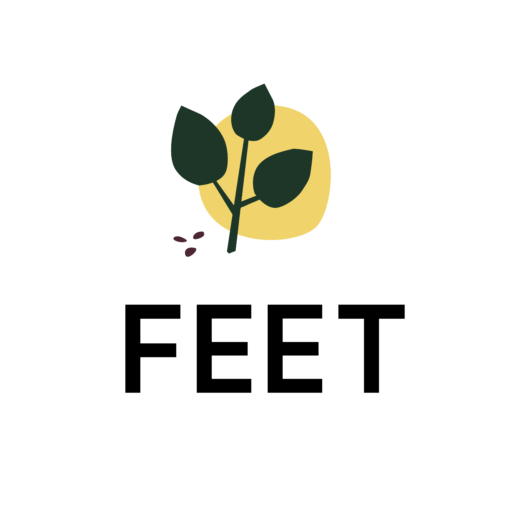Introduction
Food Environment and Enterprise Trust (FEET) was established to facilitate locally driven processes to increase agricultural productivity, conserve soil, water and forests, applying agro-ecology and market systems approaches, hence contributing to inclusive, equitable, resilient and sustainable food systems and livelihoods.
Vision
Empowering families and local communities to cultivate sufficient safe nutritious foods and other products through agro-ecological practices, optimising the use of natural resources in a regenerative manner.
Mission
To actively involve families and local communities in realising this vision by training, mentoring, and facilitating collaboration with community leadership and other strategic partnerships in the target areas.
Who we are
Africa is projected to have a population of two billion people by 2050, with the majority being women and youth. This projection underscores the magnitude of agricultural challenges: to feed Africans, create wealth for them, and conserve resources for future generations. Southern African countries, where hunger and food scarcity are pervasive, are implementing various strategies to meet growing demand and avert food insecurity and famine. However, poverty in African communities is deeply rooted in historical, political, economic, social, and environmental factors. The legacy of colonisation, political instability, corruption, inadequate investment in education and healthcare, poor infrastructure, climate change impacts, gender inequality, and global economic inequities all contribute to the persistence of poverty.
Addressing these complex challenges requires comprehensive and sustainable strategies that prioritise inclusive and equitable development, good governance, investment in human capital, sustainable natural resource management, and collaboration with like-minded organisations. Efforts to transform African communities must be context-specific, participatory, and rooted in the principles of social, economic, and environmental justice.
FEET is a skills development organisation for smallholder farmers and agribusinesses. It capacitates and empowers women, men and youth in target communities to gainfully participate in agricultural value chains, linking them to inputs and outputs markets, ensuring the conservation of soil, water, forests and the environment at large for a balanced ecosystem in each locality. We collaborate with various community-based organizations, like-minded organizations, and government departments, fostering collaborative learning and adaptive management, and inclusion of women, youth and other vulnerable population groups when implementing activities. FEET enhance their knowledge through capacity-building interventions using Organisational Workshops (OW), permaculture, agro- ecology, regenerative and market systems approach. These systems serve as tools to address food insecurity, malnutrition, and dependency syndrome in rural communities, rehabilitate degraded agro-ecological systems, and strengthen the social and economic structures of marginalised communities. These processes help to build infrastructure, create new lucrative enterprises, enable new ways of organising, and improve the institutional and governance fabric of communities.
The process encompasses the transformation, adaptability, and resilience of individuals, families, and societies. FEET exist to foster the development of thriving, content communities and households, where families take pride in their stewardship, with access to sufficient safe nutritious, and economic freedom to afford other livelihood needs, while caring for the entire landscape.
Programms
Agro-ecology: Food production in harmony with nature, focused on safe nutritious food diversity.
Biodiversity Restoration: Awareness to climate change, afforestation, wetland management, indigenous food production – revival of traditional African food.
Enterprise Development: A means to create local and circular economy systems.
Collaboration, learning, and adaptation, core creating knowledge that is shared widely.
Affiliations & Project partners
Nature + Project (Canadian Food grains Bank Project Number 3118) TSURO Trust
Email: info@tsurotrust.org
Website: www.tsurotrust.org
SKI Seed and Knowledge Initiative (SKI) smallholder farmers reviving seeds and practise agro-ecology principles www.seedandknowledge.org
International Permaculture Convergence Council (IPCC) a global represented council for international permaculture convergence and conferences http://internationalpermacultureconvergence.org
The International Permaculture Collaborative Laboratory (CoLab) space to enhance the effectiveness of permaculture networks. https://www.permaculture.org.uk/terms
Permaculture Global is international website-based platform to share permaculture projects and programs internationally https://permacultureglobal.org
Team
Our board of trustees includes:
Jona John Nzira (contact details: Cell: +263 712 807 922; Email: johnnzira@gmail.com)
Wilson Kutiya
Sheilate Masema Tafirenyika
Patricia Rwasoka-Masanganise
Chiedza Naomi Chimwa


